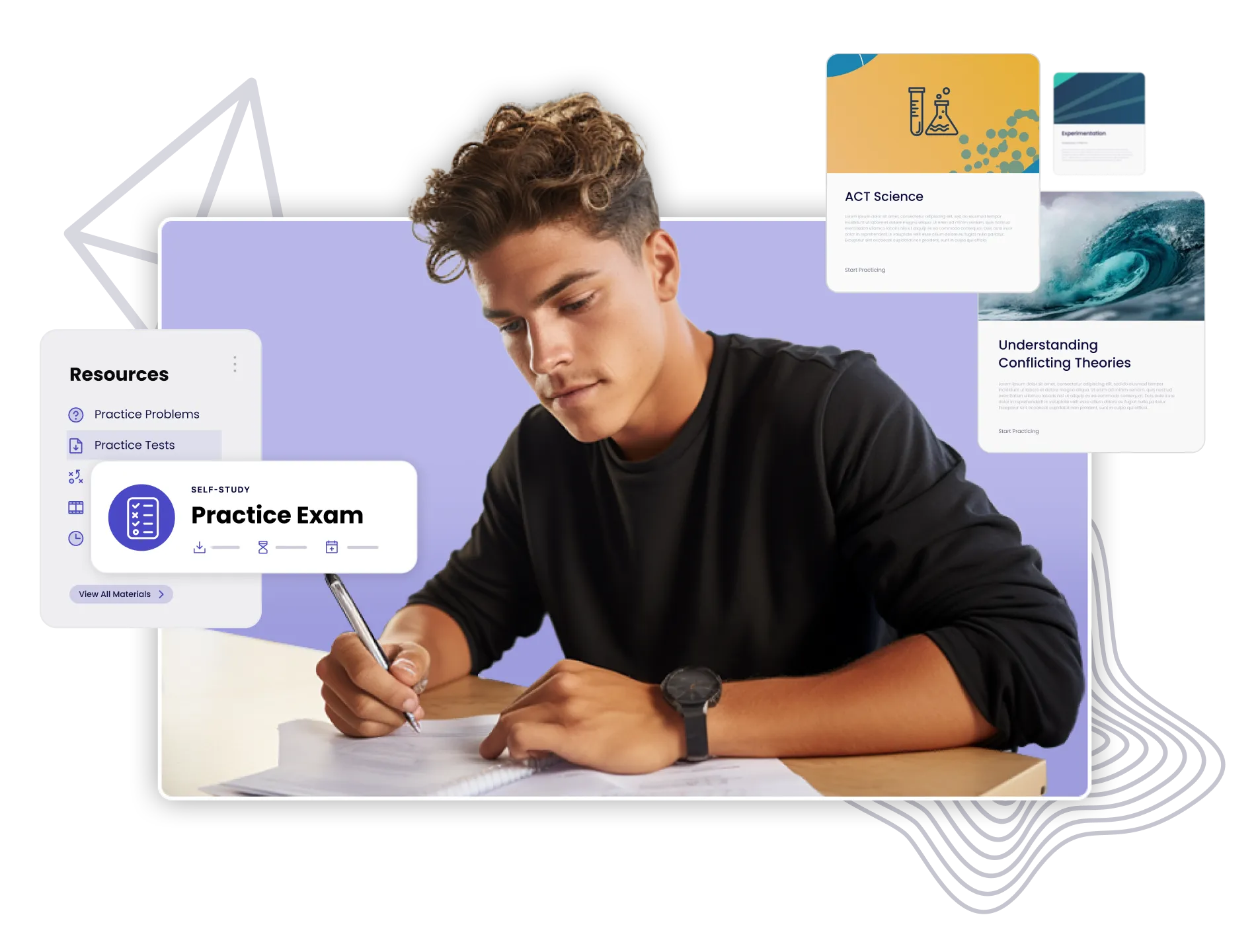Preparing for School: Teachers' Advice for Students

It’s August! That means Back to School is in full swing, and the preparations have begun. Between shopping for outfits and school supplies, summer reading, test prep, and all your other back-to-school rituals, your schedules are packed. But, students, we need to talk. Or, rather, your teachers need to talk to you about what they’d really like you to do in order to have a successful school year. We asked high school teachers for their top pieces of advice for students starting a new school year, and they did not disappoint. Their advice could make a huge difference in your academic journey this year. So, let’s dive into the top things your teachers wish you’d do to get ready for the school year.
1. Brush up on basics.
Reading and Writing
“As the years have gone by, fewer and fewer of my students know how to craft a good essay or to really synthesize literature. I’m all for summer reading, tutorials, all of that, and anything students can do to up their reading and writing abilities will go far in helping them succeed. These are valuable skills, and though my students don’t seem to believe they’ll need them, they will!”
Cynthia S., Pre-AP English, New Haven, CT
Resources We Love: To get a “jump” on next year’s concepts, try our Jumpstart Reading and Writing classes!
Math Fundamentals
“I know no one wants to study over the summer, but when it comes to math, it’s really a use-it-or-lose-it game. I have to spend a lot of time basically reteaching last year’s concepts to students, but by the time they get to the higher levels, they may not have the time in the year to relearn the things they’ve forgotten over the summer. Even starting to refresh math concepts from the previous year late in the summer will help so much in getting them prepared for math in the coming year, and as an Algebra teacher, I promise, it will be noticed and appreciated.”
Andrew M., Algebra, Boston, MA
Resources We Love: We also have a wide selection of Jump Start Classes for High School Math! No matter what level of math you’re going into, Varsity Tutors has got you covered!
2. Learn to manage your time
“I find that a lot of my students don’t really know how to study or manage their time outside of school. And I get it! Demands are high! Schedules are full! But at this point there are so many time management apps. I just want my students to make the effort to take their studies seriously and really plan for them. Time management is a skill no one is born knowing, but the sooner they learn what works for them, the better.”
Dakota B., Physics, New York, NY
3. Think critically
“Don’t just sit and wait for me to tell you the answers! Think critically. Make connections. If x is true, then the result must be…? Y! That seems to be a problem for a lot of my students. I blame the emphasis on rote memorization for standardized testing in some of the lower grades. My advice would be that when you read or study, ask yourself why you’re being asked to read this. Why is it important? and How does it fit into the bigger picture? You’re here to learn, not to regurgitate an answer so I can check off a box and call it a day.”
Kathleen B., Pre-AP English, Houston, TX
4. Stay organized, learn to study, and manage your tech
Organization and study
“The amount of homework that’s been ‘lost’ over the years simply due to having been forgotten in a messy backpack or bedroom is astronomical. Keep your study space tidy and track your assignments and due dates with a planner or digital tool. They’re everywhere and you should use them! Also? Studying. Fewer and fewer of my students come to me with any idea how to study. Practice good study skills, learn what works for you, and you’ll be so much better off in the coming semester.”
Elijah R., History, Syracuse, NY
Resources We Love: If organization and study skills are recurring problems for you (or you just want to level yourself up) our Study and Organization Skills class is a crash course in finding the system that works best for you.
Tech management
“Use technology to support your learning but don’t let it replace basic skills like note-taking and face-to-face communication. I can tell a ChatGPT essay from a mile away, and so can every teacher I know. (You know we get trained on this stuff, right?) Also, I don’t know why I still have to say this, but put those phones away! Seriously!”
Bryan M., English 4, Henderson, TX
5. Communicate and embrace failure
Communication
“I see a lot of conflict in class that boils down to lack of communication. Make it a point to talk to your peers, not just text or message them. So much can get misconstrued over text, and it boils over into classroom behavior. The number of group projects I’ve seen get derailed over a misinterpreted text is crazy. I’m happy to help you resolve conflicts, but really, making it a point to be present and communicate clearly will help you so much, not just in high school group projects, but in life after high school too.”
Zehra L., Biology, Tallahassee, FL
Fear of failure
“A lot of my students, both high achievers and otherwise, seem to be SO afraid of failure. A lot of the time they don’t speak up because they’re afraid of being wrong, but what they don’t realize is that being wrong is a key part of learning! You have to be brave enough to possibly be wrong if you ever want to learn anything that sticks. And honestly, a lot of your classmates probably have the same question or came to the same conclusion. You being brave enough to risk being wrong helps not just you but everyone.”
Jennifer N., AP English, Boise, ID
As you head back to school, keep in mind that preparation goes beyond just buying supplies. Remember, making the effort to follow these tips can make a big difference in your school year. Here’s to a productive and successful year ahead!

